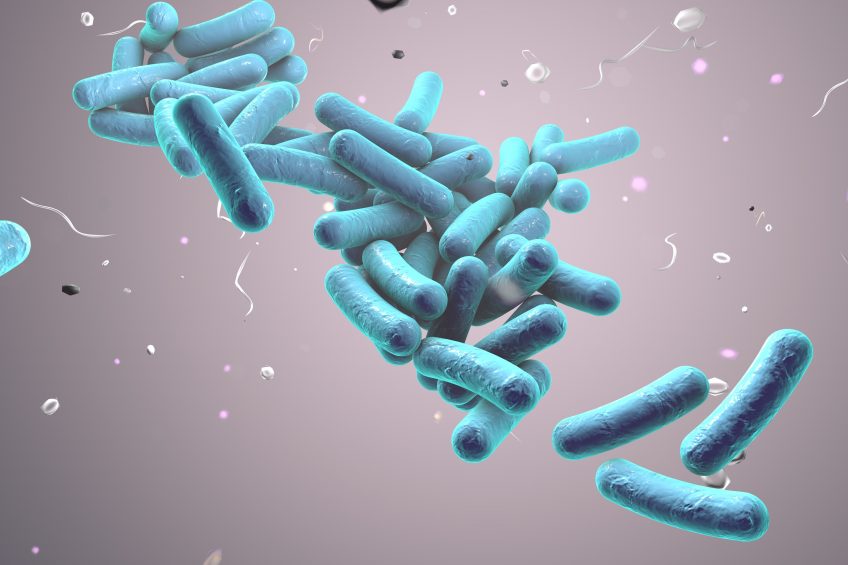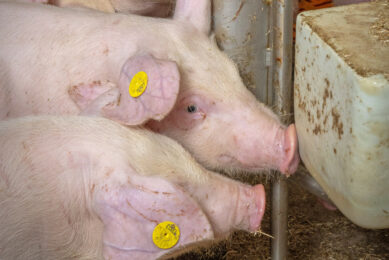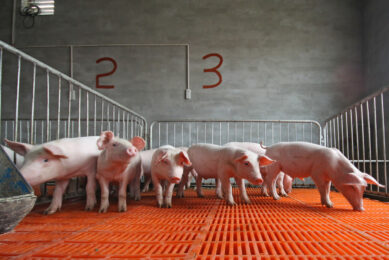New: Gene catalogue of pig gut microbiome

French researchers have published the 1st gene catalogue of the pig’s intestinal microbiome, a joint effort of research institutes and animal nutrition companies.
The first reference gene catalogue was presented at the 50th edition of the Swine Research Days (JRP), held in Paris, France, at 6-7 February 2018. Parties included in the public-privat consortium were the French National Institute for Agricultural Research (INRA), Bioporc, CCPA, Invivo NSA, Lallemand Animal Nutrition, MixScience and Techna France Nutrition.

Read more about pig health in the Pig Progress Pig Health Tool
Pig gut microbiota
The gut microbiota defines the microbial ecosystem that resides in the gut and interacts continuously with its host. Its multiple functions complement those of the host, including the contribution to the digestion of fibrous feed not or little digestible, the synthesis of vitamins and short-chain fatty acids, the maturation of the immune system.
In recent years, the gut microbiota has become an important biological compartment to study in farm animals because it has been identified as an actor in the individual variability of phenotypes.
Variations in gut microbiota composition
Recent results in pigs highlight links between variations in gut microbiota composition and feed efficiency, growth performance and immune parameters. The sequencing of the microbiota DNA is providing information on the cultivable and non-cultivable microbial communities, the latter being the majority.
Jordi Estellé, INRA, said, “We have established the first gene catalogue of the pig gut microbiome by deep sequencing faecal DNA from a cohort of 287 pigs bred in France, China and Denmark. The catalogue contains more than 7.6 million non-redundant genes.”
He continued to say, “A total of 719 metagenomic species was identified. Half of the genes could be taxonomically assigned, and 98% of them corresponded to bacteria. The most abundant phyla were the firmicutes (28.73%) and the bacteroidetes (9.28%). The pig and human catalogues share 5 times as many genes as the mouse and human catalogues, supporting the use of pigs for biomedical research.”
Analysis of antibiotic resistance genes
Mr Estellé said, “Analysis of the prevalence of antibiotic resistance genes demonstrated the effect of eliminating antibiotics from animal diets and thereby reducing the risk of spreading antibiotic resistance associated with farming systems.
“Additional faecal samples from animals of various ages and physiological conditions (e.g. gestating sows, young piglets before and after weaning) were sequenced, and the results validated that the catalogue is perfectible but already provides a good coverage of microbial diversity.”

Valuable resource to implement metagenomics in pigs
The gene catalogue of the gut microbiome constitutes a highly valuable resource to implement quantitative metagenomics in pigs and to contribute to understand better the construction and plasticity of phenotypes.
Mr Estellé concluded, “The scientific and technological context is favourable for setting up projects that cross individual information related to the microbiome (diversity, functional ecology) and to the host (genetics, zootechnical and clinical characteristics, immune status), in order to integrally approach the new characters to be measured and improved.”











